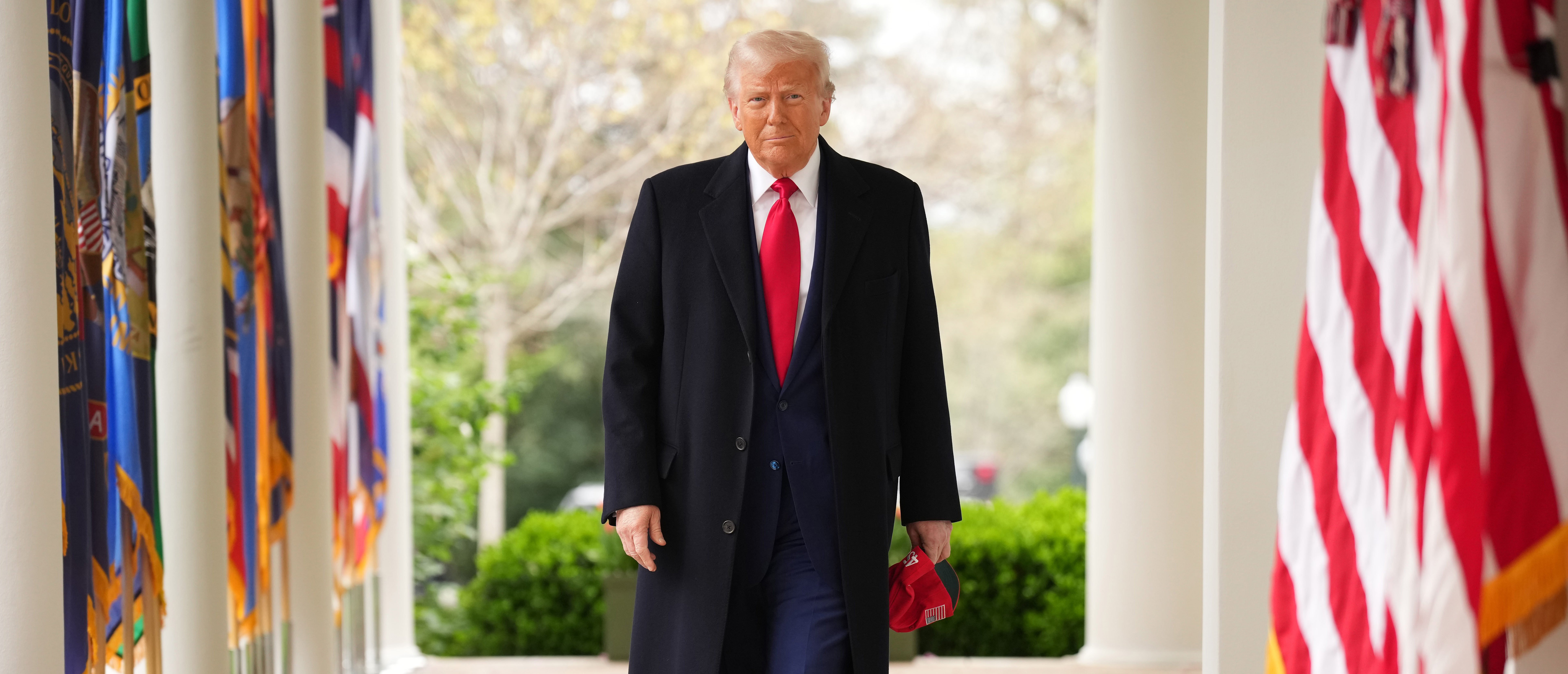Some experts have warned that many of the diversity, equity and inclusion (DEI) policies which have become prevalent throughout corporate America in recent years may have resulted in a variety of problems in the workplace.
Former President Joe Biden spearheaded an enormous effort to promote DEI initiatives during his time in office, including signing a day one executive order that required federal agencies to “pursue a comprehensive approach to advancing equity for all.” Subsequently, President Donald Trump has made it a cornerstone of his presidential agenda to eliminate Biden-era DEI policies and so-called “woke” ideology in the federal government, education and the private sector during his second term.
Many American corporations have embraced diversity efforts during Biden’s sole term. Notably, more than eight in ten U.S. organizations reported that they were implementing DEI initiatives in 2021, according to a September 2021 survey by WorldatWork.
A host of major American businesses and Wall Street titans, including Walmart, Citigroup and Goldman Sachs, have begun pivoting away from diversity programs over the past year after facing increasing backlash from consumers and investors.
One potential issue with some American corporation’s DEI initiatives is that they can result in “exclusionary behavior,” Anson Frericks, an American business executive and former president of Anheuser-Busch Sales and Distribution Company, told the Daily Caller News Foundation.
“What DEI morphed into, especially during the Biden administration, is the ‘D’ in DEI really came to be about quota systems, the ‘E’ piece really became about the same forced equal outcomes for individuals, and then the ‘I’ piece wasn’t inclusive, it really became exclusionary behavior where anyone who questioned any of these DEI policies that were put in place could lose their jobs, be demoted or they were silenced,” Frericks told the DCNF.
Trump has notably introduced several executive actions to overturn DEI programs in the federal government and the private sector since returning to the Oval Office. The president signed an executive order in January that directed all federal agencies to “enforce our longstanding civil-rights laws and to combat illegal private-sector DEI preferences, mandates, policies, programs, and activities.” (RELATED: Minnesota Rejects Trump’s Order To Remove DEI From Schools)
Moreover, Trump unveiled an additional executive order the same month aiming to eliminate “radical indoctrination” in K-12 schools.
“I think a lot of it is extremely self-explanatory, DEI is — by definition — harmful to corporate America because it is putting the focus on something other than merit, performance and productivity,” David Bahnsen, founder and managing partner of The Bahnsen Group, a national wealth management firm, told the DCNF. “There’s such a huge emphasis in American entrepreneurial tradition on achievement and performance and meritocracy, and DEI is asking the culture to look outside of performance productivity and achievement and instead focus on identity politics.”
“I think a broad cultural move away from it [DEI] is probably more welcome in corporate America than anywhere else,” Bahnsen added.
 WASHINGTON, DC – APRIL 02: U.S. President Donald Trump arrives to speak during a “Make America Wealthy Again” trade announcement event in the Rose Garden at the White House on April 2, 2025 in Washington, DC. (Photo by Andrew Harnik/Getty Images)
WASHINGTON, DC – APRIL 02: U.S. President Donald Trump arrives to speak during a “Make America Wealthy Again” trade announcement event in the Rose Garden at the White House on April 2, 2025 in Washington, DC. (Photo by Andrew Harnik/Getty Images)
“All of a sudden, companies saw that these [diversity] policies were costing them millions of customers, billions of dollars in value, and they weren’t leading to a more diverse or more equal workplace,” Frericks told the DCNF. “And so companies — even before Trump was elected — started walking back a lot of these policies. And then after the election, especially once Trump dismantled what was left of DEI. That has helped to accelerate the trend.”
“It’s kind of silly for myself coming from a corporate workforce background, that there was no one program that spread across all of corporate America, but all of a sudden you had DEI which became this one-size-fits-all approach for every company in corporate America,” Frericks added. “And it became increasingly regimented and increasingly restrictive in terms of what DEI meant, and it ended up not working out for the vast majority of the companies, and that’s why you’ve seen so many walk away and just a few true believers that are adhering to DEI.”
While some blue states have opposed the Trump administration’s massive push to eliminate diversity programs across the U.S., many voters are largely supportive of the effort. A poll from The Economist/YouGov released in January found that a plurality of Americans support ending DEI programs in schools and the government. (RELATED: Blue States Are Keeping DEI On Life Support)
“DEI is legally risky, discriminatory, and divisive,” Alliance Defending Freedom Senior Vice President of Corporate Engagement Jeremy Tedesco told the DCNF. “That’s why we’ve led multiple letters and worked with shareholders like The Heritage Foundation to call on major corporations like IBM to ditch DEI. No company has a good reason to stick with these policies, and many were wise to correct course even before President Trump’s executive orders on DEI clarified the legal risks associated with treating some employees worse than others because of their race or sex. Businesses should focus on their core purpose—which is producing excellent goods and services that improve people’s lives. Every business should also embrace policies and practices that respect the fundamental values that have built our nation, including speech and religious freedom.”
During his address to a joint session of Congress on March 4, Trump vowed that “our country will be woke no longer” under his leadership.
“In terms of hiring and HR practices, DEI became the only way that companies could articulate how they were hiring people, and each year those hiring practices became more restrictive,” Frericks told the DCNF. “It [DEI] just did not make sense.”
All content created by the Daily Caller News Foundation, an independent and nonpartisan newswire service, is available without charge to any legitimate news publisher that can provide a large audience. All republished articles must include our logo, our reporter’s byline and their DCNF affiliation. For any questions about our guidelines or partnering with us, please contact licensing@dailycallernewsfoundation.org.


![NYC Tourist Helicopter Falls into Hudson River, Siemens Executive and Family Among Those Killed [WATCH]](https://www.right2024.com/wp-content/uploads/2025/04/NYC-Tourist-Helicopter-Falls-into-Hudson-River-Siemens-Executive-and-350x250.jpg)






![Green Day’s Cringe Trump Diss Ends in Fire and Evacuation [WATCH]](https://www.right2024.com/wp-content/uploads/2025/04/Green-Days-Cringe-Trump-Diss-Ends-in-Fire-and-Evacuation-350x250.jpg)
![Red Sox Fan Makes the ‘Catch of the Day’ with Unconventional ‘Glove’ [WATCH]](https://www.right2024.com/wp-content/uploads/2025/04/Red-Sox-Fan-Makes-the-‘Catch-of-the-Day-with-350x250.jpg)






